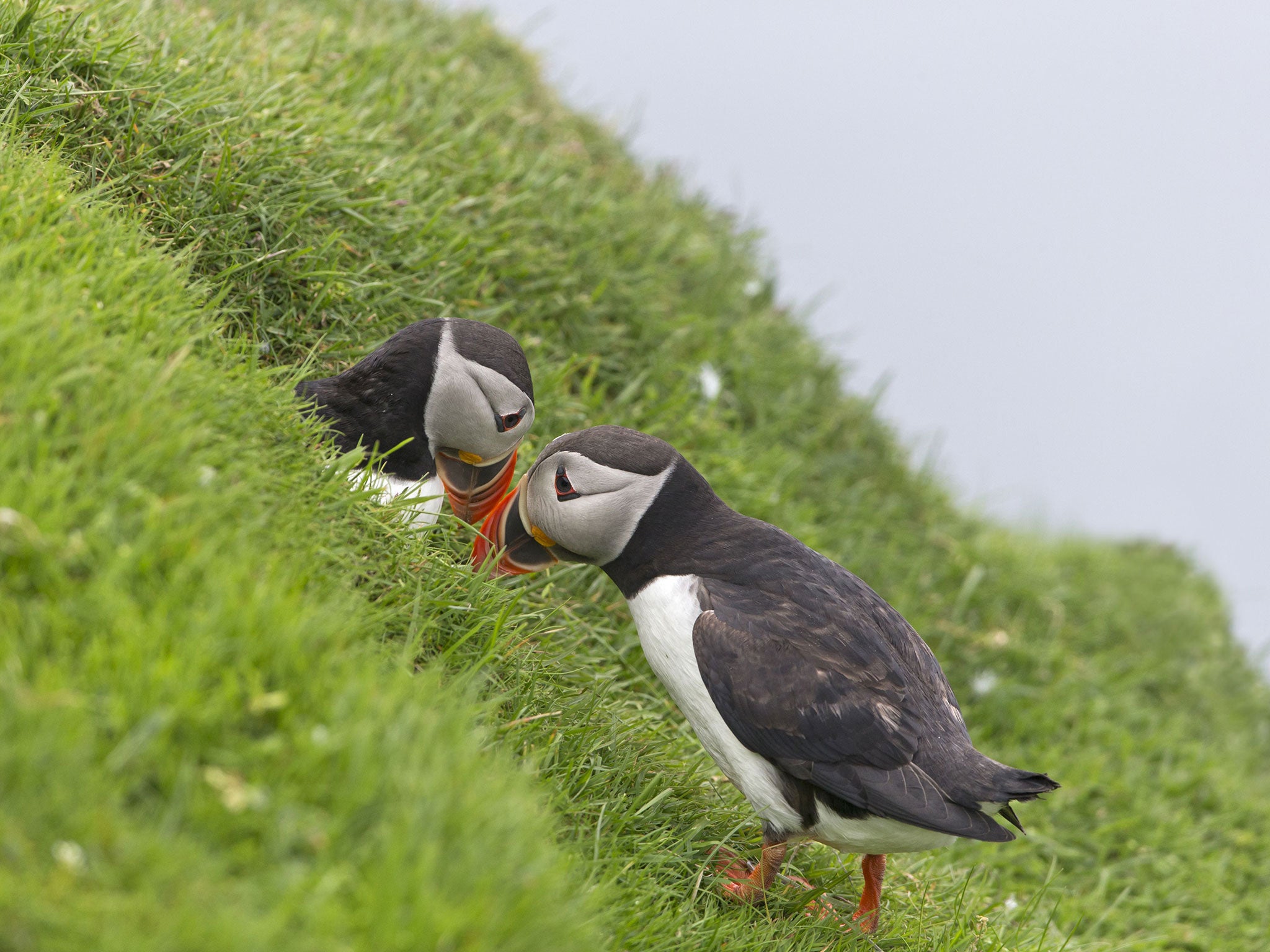Number of Puffin pairs plummets on Shetland
The numbers breeding there have halved from around 20,000 to 10,000

Your support helps us to tell the story
From reproductive rights to climate change to Big Tech, The Independent is on the ground when the story is developing. Whether it's investigating the financials of Elon Musk's pro-Trump PAC or producing our latest documentary, 'The A Word', which shines a light on the American women fighting for reproductive rights, we know how important it is to parse out the facts from the messaging.
At such a critical moment in US history, we need reporters on the ground. Your donation allows us to keep sending journalists to speak to both sides of the story.
The Independent is trusted by Americans across the entire political spectrum. And unlike many other quality news outlets, we choose not to lock Americans out of our reporting and analysis with paywalls. We believe quality journalism should be available to everyone, paid for by those who can afford it.
Your support makes all the difference.The number of puffins breeding on Shetland has halved over nearly three decades, according to a recently published long-term study.
Researchers analysed a large puffin colony on Fair Isle, which lies halfway between mainland Shetland and the Orkney islands. They found the numbers breeding there have halved from around 20,000 to 10,000 individuals, with the most likely cause being that the Fair Isle’s young birds were failing to return to it. Experts say this could be because of a lack of fish to feed on.
Dr Will Miles of the Fair Isle Bird Observatory said: “It may be due to declining local fish stocks and poor feeding conditions for seabirds in Shetland waters.”“It is very difficult to find out exactly what happens to immature puffins after they have fledged because of the vast sea areas and the problems of tracing them within other colonies.”
Dr Mark Bolton, of the RSPB, was an advisor to the Fair Isle puffin study.
He said: “The UK supports internationally important populations of puffins, which are among our best-loved seabirds.
“Whilst visitors to Fair Isle can still enjoy the spectacle of thousands of birds, the severe decline reported in this study is cause for considerable concern.”
The study was published by the scientific journal PLOS ONE, and covers a period of almost thirty years, starting in 1986.
Join our commenting forum
Join thought-provoking conversations, follow other Independent readers and see their replies
Comments